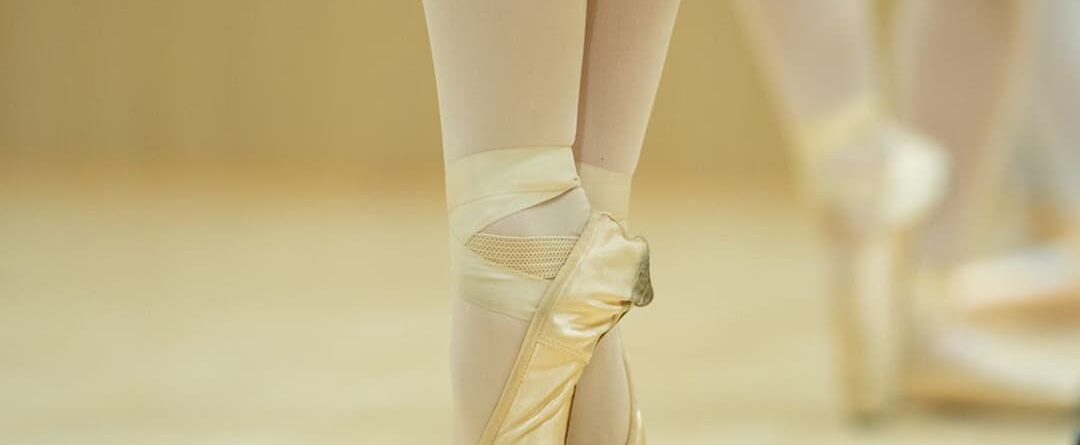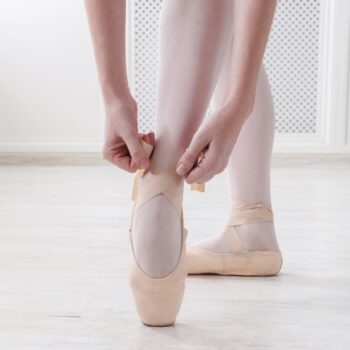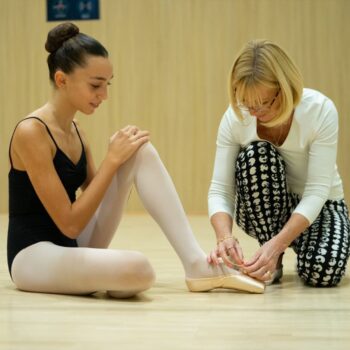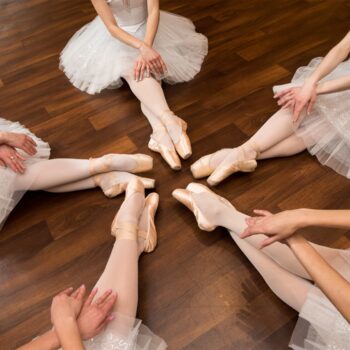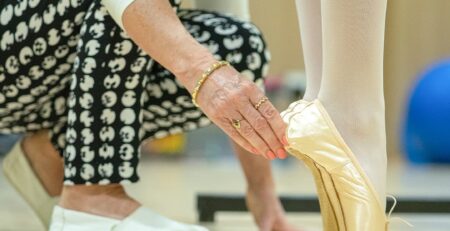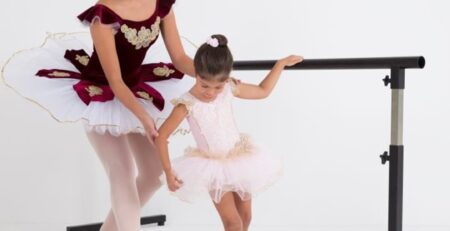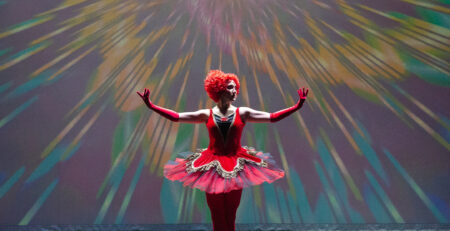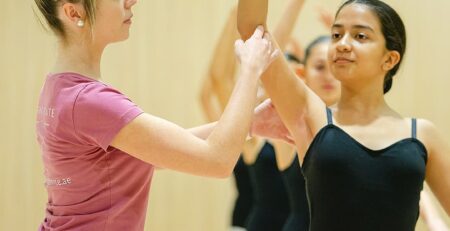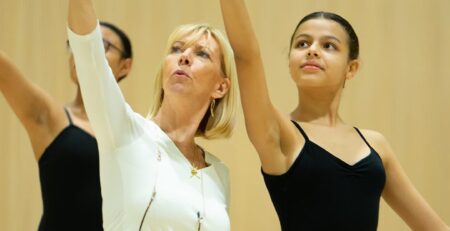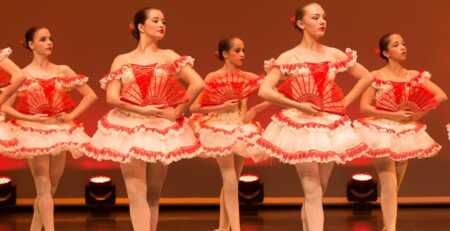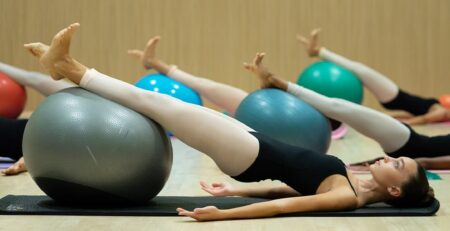Can Adults Learn Ballet En Pointe? Tips for Beginners
Ballet is a form of dance that requires discipline, dedication, and hard work. One of the most iconic moves in ballet is dancing en pointe, which means dancing on the tips of your toes while wearing special shoes called pointe shoes. Many adults are interested in learning ballet en pointe, but they may wonder if it’s possible to do so as an adult. In this blog, we’ll explore the question of “can adults learn ballet en pointe?” and provide tips for beginners interested in trying.
Can Adults Learn Ballet En Pointe?
The short answer is yes; adults can learn ballet en pointe—however, there are some essential things to consider before jumping into this type of dance. Ballet en pointe requires a lot of strength, flexibility, and technique, so it takes time to learn. Here are some factors to keep in mind:
- Age: While it’s possible to start learning ballet en pointe as an adult, it’s essential to understand that the earlier you start, the easier it will be to develop the strength and technique needed for this type of dance.
- Physical Health: Dancing en pointe requires a lot of physical strength, so it’s essential to be physically healthy before attempting this type of dance. If you have any injuries or medical conditions, it’s a good idea to consult with your doctor before starting.
- Experience: It’s essential to have a solid foundation in ballet before attempting to dance en pointe. You should have several years of ballet training and a good understanding of basic ballet techniques.
What Does It Mean to Dance En Pointe in Ballet?
Before we dive into the suggestions for beginners, let’s first clarify what it means to dance en pointe in ballet. Dancing en pointe means dancing on the tips of your toes while wearing pointe shoes. Pointe shoes have a rigid, supportive box in the toe area that allows dancers to balance on the tips of their toes without injuring themselves. En pointe dancing is an advanced technique in ballet that demands a significant level of strength and practice and is generally performed by more advanced ballet dancers.
Also Read: HOW OLD IS TOO OLD TO START BALLET?
Tips for Beginners
If you’re an adult who is interested in learning ballet en pointe, here are some tips to help you get started:
- Strengthen Your Feet and Ankles: Dancing en pointe requires a lot of strength in your feet and ankles. Before attempting to dance en pointe, it’s essential to strengthen these areas. Exercises like relevés, ankle circles, and foot stretches can help build strength.
- Work on Your Ballet Technique: As mentioned earlier, having a solid foundation in ballet is essential before attempting to dance en pointe. Make sure you’re taking regular ballet classes and focusing on improving your technique.
- Invest in Professionally fitted Pointe Shoes: Professionally fitted pointe shoes are essential to dancing en pointe, a properly fitted pair will not only help you to dance better but will also avoid unnecessary injuries, so investing in a pair that are fitted professionally is crucial. Turning Pointe offers a variety of pointe shoes, and our professionally trained staff can help you find the perfect pair for your feet.
- Start Slowly: When you first start dancing en pointe, taking things slowly is essential. Focus on building up your strength and technique gradually, and don’t try to do too much too soon. This will help prevent injuries and ensure you build a strong foundation.
- Listen to Your Body: Listening to your body when dancing en pointe is essential. If something feels painful or uncomfortable, stop and take a break. It’s better to take things slowly and avoid injuries than to push yourself too hard and end up sidelined.
Benefits of Learning Ballet En Pointe as an Adult
Ballet en pointe is a challenging and beautiful art form that can benefit adults in numerous ways. Here are some of the key advantages:
- Improved Strength and Flexibility: Regular ballet classes and en pointe training can improve overall strength and flexibility, leading to better posture, balance, and fitness. It may also prevent age-related bone density loss.
- Increased Body Awareness and Control: Learning ballet en pointe requires a heightened sense of body awareness which can improve balance and coordination. Adults may learn ballet more quickly due to their greater understanding of their bodies.
- Mental and Emotional Benefits: Ballet requires discipline, focus, and perseverance, which can help build confidence and resilience. It can also offer stress relief and be a calming, meditative practice.
- Opportunity for Self-Expression and Artistic Growth: Ballet is an expressive art form allowing self-expression and artistic growth. Adults can explore different styles and techniques and develop their unique style while connecting with their emotions.
- Social and Community Benefits: Ballet classes offer a chance to meet new people and make friends with similar interests. Adults can become part of a supportive community of dancers, and performing can connect them with an audience and allow them to share their love of dance.
Also read: The Surprising Benefit of Ballet Dancing
Common Mistakes to Avoid When Learning Ballet En Pointe
Aspiring ballerinas sometimes make mistakes that may slow their progress or cause injuries. These tips can help you avoid those mistakes and get the most out of your ballet en pointe training.
- Build a strong foundation in ballet technique: Before attempting more advanced moves, it’s essential to master the basics of ballet technique. Skipping or rushing through these foundational steps can lead to bad habits, poor form, and an increased risk of injury.
- Practice injury prevention and self-care: Dancing en pointe puts a lot of strain on your feet and ankles, so taking steps to prevent injury and care for your body is crucial. This includes warming up before class, wearing proper shoes and clothing, and taking rest days when needed. Neglecting injury prevention and self-care can lead to pain and injuries that can set you back in your training.
- Focus on technique over aesthetics: While dancing en pointe can be visually stunning, it’s important to prioritise proper technique over aesthetics. Proper technique is essential for executing moves correctly and safely, and sacrificing technique to look good can hinder your progress and increase your risk of injury.
- Listen to your body and avoid pushing too hard: Pushing yourself too hard can lead to burnout and injury. It’s essential to listen to your body and take breaks when needed. If something feels painful or uncomfortable, it’s crucial to stop and rest. Pushing through pain can lead to long-term injuries and a longer recovery time.
- Avoid comparing yourself to others: Everyone progresses at their own pace, and focusing on your journey and celebrating your successes is essential. Comparing yourself to others can lead to discouragement and a lack of motivation, ultimately hindering your progress.
Conclusion
This blog post has explored the question “can adults learn ballet en pointe?” and provided tips for beginners. While it may be challenging, adults can learn ballet en pointe with time, patience, and dedication. Before attempting this type of dance, having a solid foundation in ballet and good physical health is essential. The benefits of learning ballet en pointe as an adult include improved strength, flexibility, balance, coordination, body awareness, self-expression, and artistic growth. Turning Pointe offers various pointe shoes and dance classes in Dubai and Abu Dhabi to help beginners get started. With discipline and hard work, anyone can achieve their dream of dancing en pointe and enjoy this beautiful art form’s numerous physical and mental benefits.


